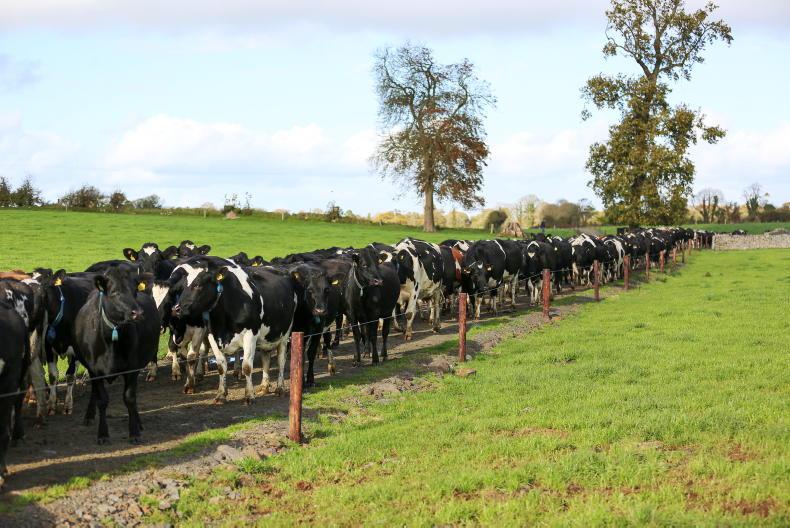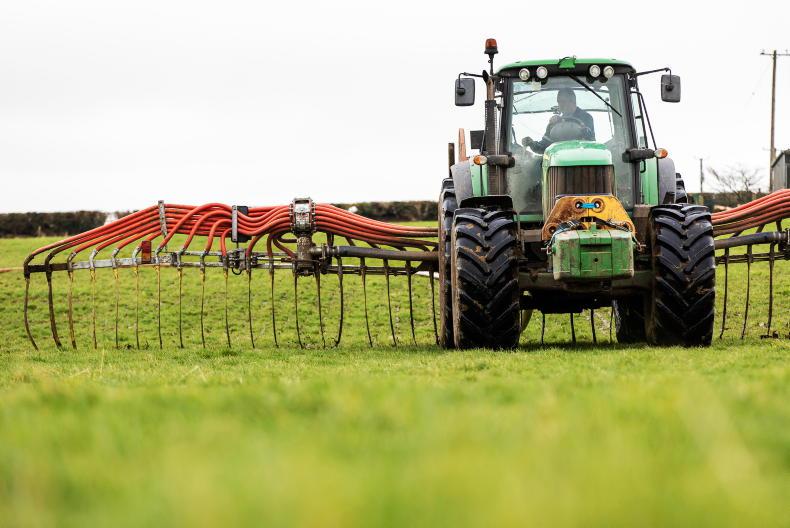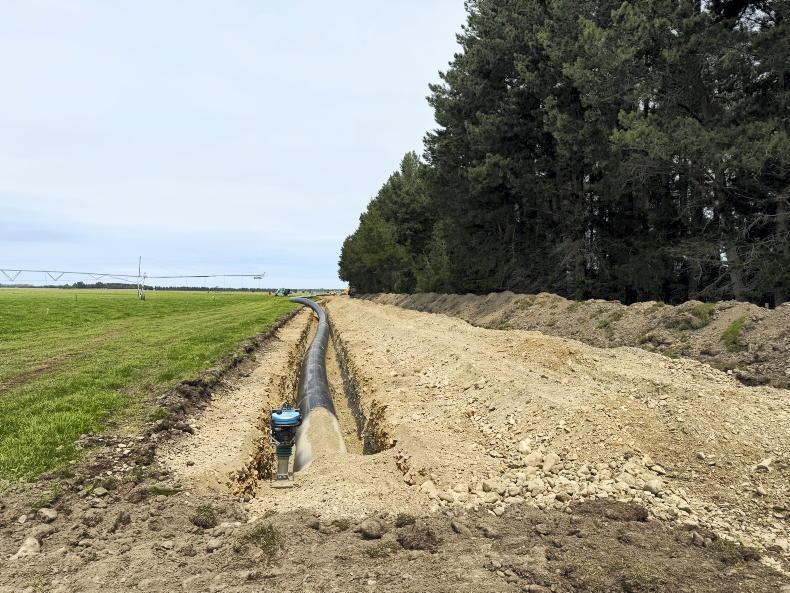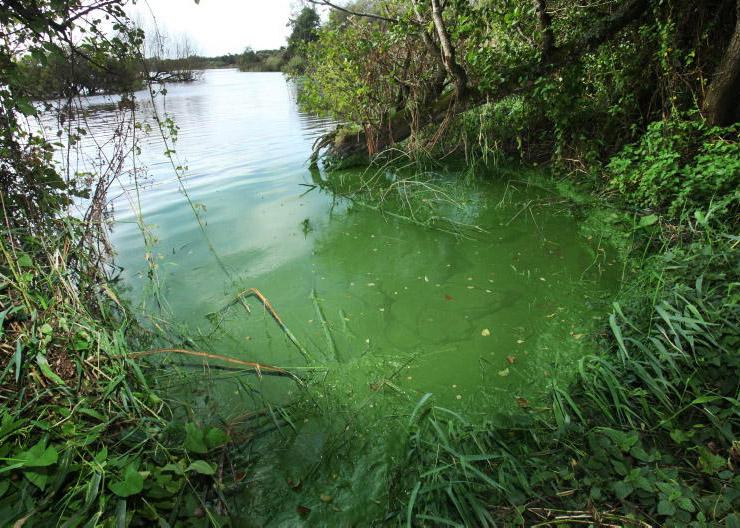IFA president Tim Cullinan has hit out at the proposal to bring the closed period for slurry spreading forward by one month, from October to September.
He told an Oireachtas agriculture committee meeting on nitrates that the proposal “makes no sense, good, bad or indifferent”.
“We all have a valuable resource in organic fertiliser and if a farmer is to apply organic fertiliser to his paddocks, when he is finishing his last from the grazing up to mid-October, we’ve looked at this, and you will have at least 30% more grass available for the first round of grazing in the spring, without using any chemical N and decreasing costs coming into your farm.
“What’s the logic in preventing farmers using a valuable resource that’s on their farm?”
On soiled water, Cullinan said that the practice to date has been that been the farmers are distributing soiled water over lands during the winter period and that this has to continue. “We are clearly saying if you look at it, there’s 3.3 units of nitrogen per 2,500 gallons now and if you look at slurry, there’s 16 units per 2,500 gallons.
“So there’s no comparison whatsoever. It’s a practice that was agreed a number of years ago with ourselves and the Department, and that needs to continue.
“The next concern I have is around the covering of the outdoor storage tanks, and what we’re seeing here now with the reason this is being done is for abatement on ammonia.
“There’s no need for covering outdoor storage tanks,” he said.
Pat McCormack, president of the ICMSA, said the current nitrates regulations need to be promoted.
He said that “rather than promoting additional regulations, we’d like to see a promotion of the regulations that exist at this point in time, and the need to abide by those regulations in order to see various different things, including water quality and biodiversity, improve in the months and years ahead”.
McCormack said the proposed requirement to separate soiled water and slurry on farms, in particular those farms that can accommodate the entirety collectively, was “nonsensical”.
On the proposed banding of livestock excretion rates, McCormack said the notion that this could be brought in in three months’ time is totally out of sync. “We need to see the data behind it. We’ve seen the organic nitrogen move from 85kg to 89kg, and that has created substantial pain for farmers. We’ve the analysis done where a farmer with 100ac and in excess of 6,500 litres, could potentially lose 18 dairy cows. That ultimately could undermine his or her business. It would undermine the entire dairy industry if it was to happen.”
Macra na Feirme president John Keane said his members had also expressed concerns around the banding proposals.
“Those who were in a certain bandwidth this year, let’s just say 6,400 litres, and next year they’re coming to the back end of the year and they’re producing slightly more, they’re going to be in a higher band brackets, which is essentially going to be a quota where that farmer is not going to want to produce anymore, because he’s reaching the upper limit of that band.
“So how practical that is on farm needs to be greater clarified for farmers out there, if we’re making decisions based on this.
“There has also been concerns from our members in terms of are we essentially saying that the dual purpose cow, who historically had a really strong place in Irish agriculture for both beef and milk production, is being unduly penalised for having that type of a genetic makeup,” he said.
Henry O’Donnell of the INHFA said his members are worried that a “broad brush approach” will be applied to the regulations from the Department of Housing.
“We would very concerned that we’re possibly dealing with people here that don’t understand that there’s different farming systems, and each system should be subject to different regulation.
“We can’t have regulation imposed that don’t apply to people, that’s been applied to people that are not causing any damage whatsoever to watercourses, and we have mentioned that farmers with different stocking levels, different nitrates levels, need to be treated differently so I think that the people designing these regulations really need to be cognisant of that.










SHARING OPTIONS